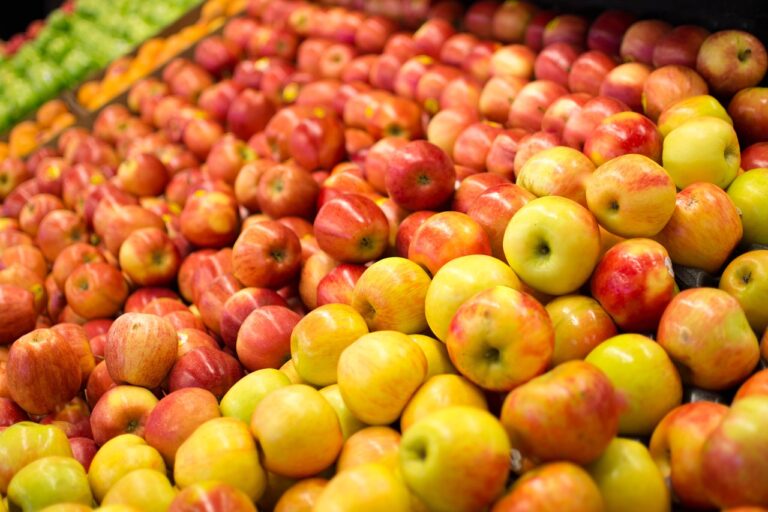Investigating the Health Effects of Pesticide Residues in Food: Cricbet 99, Sky1exchange.con, Reddy anna online book number
cricbet 99, sky1exchange.con, reddy anna online book number: Investigating the Health Effects of Pesticide Residues in Food
Do you ever stop to think about what may be lurking on your fruits and vegetables? While they may look fresh and enticing, there could be harmful pesticide residues present that you can’t see. Pesticides are widely used in agriculture to protect crops from pests and diseases, but they can also pose a risk to human health when residues are left behind on the food we consume. In this article, we will delve into the health effects of pesticide residues in food and what you can do to minimize your exposure.
What are Pesticide Residues?
Pesticides are chemicals that are used to control pests, such as insects, weeds, and fungi, in agriculture. They can be applied to crops in various forms, including sprays, dust, and granules. While pesticides are effective at protecting crops and increasing yields, they can leave behind residues on the harvested produce. These residues can remain on the food even after washing and processing, potentially exposing consumers to harmful chemicals.
Health Effects of Pesticide Residues
Exposure to pesticide residues in food has been linked to a range of health effects, including:
1. Increased risk of cancer: Some pesticides have been classified as carcinogenic or potentially carcinogenic by organizations such as the World Health Organization (WHO) and the Environmental Protection Agency (EPA). Long-term exposure to these pesticides through food consumption may increase the risk of developing cancer.
2. Neurological effects: Certain pesticides have been found to affect the nervous system, leading to symptoms such as dizziness, headaches, and tremors. Children are particularly vulnerable to the neurological effects of pesticides, as their developing brains may be more susceptible to damage.
3. Reproductive issues: Pesticide exposure has been linked to reproductive problems in both men and women. For example, some pesticides have been shown to disrupt hormone levels, leading to issues with fertility and pregnancy.
4. Respiratory problems: Pesticides can also affect the respiratory system, causing symptoms such as coughing, wheezing, and shortness of breath. Individuals with asthma or other respiratory conditions may be especially sensitive to the effects of pesticide residues.
5. Immune system disorders: Research suggests that exposure to pesticides may weaken the immune system, making individuals more susceptible to infections and autoimmune diseases. Prolonged exposure to pesticides in food may compromise the body’s ability to fight off illnesses.
Minimizing Exposure to Pesticide Residues
While it may be impossible to completely eliminate pesticide residues from your food, there are steps you can take to minimize your exposure:
1. Choose organic: Organic produce is grown without the use of synthetic pesticides, making it a safer option for those looking to avoid pesticide residues. Look for the USDA organic label to ensure that the product meets organic standards.
2. Wash and peel fruits and vegetables: Washing produce under running water and peeling fruits and vegetables can help remove pesticide residues from the surface of the food. Use a brush for scrubbing tougher-skinned produce like potatoes and carrots.
3. Diversify your diet: By eating a variety of fruits and vegetables, you can reduce your overall exposure to any single pesticide. Opt for seasonal produce and try to incorporate a rainbow of colors into your meals.
4. Grow your own: Consider growing your own fruits and vegetables in a home garden. This way, you can control the use of pesticides and ensure that your produce is free from harmful residues.
5. Stay informed: Keep abreast of the latest research on pesticides and food safety. Stay informed about which pesticides are commonly used on certain crops and make informed decisions about your food choices.
What’s Being Done to Regulate Pesticide Residues?
Regulatory agencies such as the EPA and the FDA have established maximum residue limits (MRLs) for pesticides in food products. These limits are set based on the level of exposure that is considered safe for consumers, taking into account factors such as body weight and the toxicity of the pesticide. Food producers are required to adhere to these limits and regularly test for pesticide residues to ensure compliance.
FAQs
Q: Are pesticide residues harmful to children?
A: Children are more vulnerable to the effects of pesticide residues due to their smaller body size and developing bodies. It is important to limit their exposure to pesticides by choosing organic produce and washing fruits and vegetables thoroughly.
Q: Can cooking remove pesticide residues from food?
A: Cooking can reduce the levels of pesticide residues on food, especially if they are water-soluble. However, some pesticide residues may be more resistant to heat and may not be completely eliminated through cooking.
Q: How can I find information about pesticide residues on specific fruits and vegetables?
A: The Environmental Working Group (EWG) publishes an annual list of the “Dirty Dozen” and “Clean Fifteen” which ranks fruits and vegetables based on their pesticide residues. This can help you make informed decisions about which produce to buy organic.
In conclusion, pesticide residues in food can have negative health effects, but there are steps you can take to minimize your exposure. By choosing organic produce, washing fruits and vegetables, and staying informed about food safety, you can reduce the risk of consuming harmful pesticides. Stay proactive about your food choices and prioritize your health and well-being.







